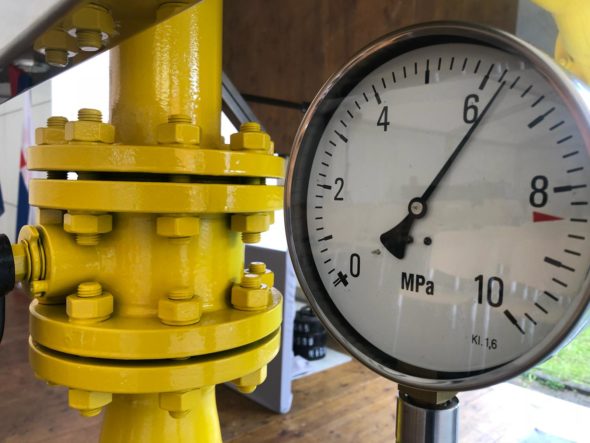Russians sanctioned EuRoPol GAZ, a company where Russia has 48 percent of shares and which owns the Yamal gas pipeline. However, this poses no treat to gas supply, as Russia had already stopped providing gas to Poland, writes Wojciech Jakóbik, editor-in-chief BiznesAlert.pl.
Russians take aim at a company where Gazprom has shares
On 11 May Russian media leaked official Kremlin documents on sanctions against EuRoPol GAZ, Gazprom Germania and Gazprom Marketing and trading. Allegedly, financial transactions with these companies will be frozen. This Russian-Polish company owns the pipeline, but doesn’t operate it, as the TSO is Gaz-System, as required by EU regulations. The company was receiving payments for transferring the Russian gas via Poland based on the tariff, which, by the way, has been considered by the Polish owner unprofitable. The transfer itself has not exceeded the basic technical amount recently, as since Easter 2021 Russians have stopped, with a few breaks, the transit via the Yamal in Poland to Germany. Whereas since April 2022 they have also stopped supplying gas contracted as part of the Yamal agreement. The sanctions will not impact Poland, because the Yamal gas pipeline is no longer used to receive supplies from Russia. At least since last year the pipe has been in preparations to transport LNG and gas from the Baltic Pipe around the country and to its neighbors. In addition, there was a plan to derusify the pipe’s owner, which the Russians made all the more likely. From this point of view, an empty Yamal is an opportunity to accelerate diversification through the polonization of Yamal’s capacity and derusification.
Empty gesture or counter-sanctions
It is worth reminding that EuRoPol Gaz was on the sanctions list announced by the Ministry of Internal Affairs and Administration. Those restrictions included a ban on transactions, which are now allegedly being blocked by Russians. Therefore, the pipe was practically empty anyway, just like the sanctions, which are a sign of helplessness in view of the ongoing derussification of the European gas sector. This is visible also in how the Russians are picking the other targets for sanctions, namely Gazprom Germania, which has control over parts of strategic energy infrastructure in Germany, including the gas storage facilities, which the local regulator Bundesnetzagentur has recently taken under court-supervised management, or Gazprom Marketing and Trading taken over in Great Britain. These assets previously belonged to Russia, but were taken over when Gazprom lowered gas supply to Europe in the summer of 2021, a move which is now openly interpreted as preparation for war and an attempt to paralyze Europe with an energy crisis, so that it would not react to Russia’s invasion of Ukraine. These efforts have failed, as the Senior Advisor for Energy Security at the State Department, Amos Hochstein, told me on May 11. From this point of view, Russia’s action can be seen as a counter-sanction, a reaction to Western actions and further escalation, as so far its efforts to exacerbate the crisis to undermine help for Ukraine, have not been successful enough. Further escalation is to be expected, e.g. the suspension of gas supplies to Germany via Nord Stream 1, to hamper preparations for the heating season. Then the embargo, which was feared by some Europen states, will be imposed in a way of its own accord, as I have warned in other texts. It is therefore necessary, for security reasons, to have a plan of action in case there will be no import of hydrocarbons from Russia.
Stay on the path
Poland should continue to strive to use our section of the Yamal gas pipeline in the interests of Polish gas consumers, and therefore to ensure security of supply without imports from Russia in the face of the impending pan-European shortage of this fuel in the next heating season. The process of turbodiversification (accelerated search for alternatives) may result in Poland getting non-Russian gas not just for itself, but also for its neighbors. The biggest victim of this process is Russia’s Gazprom, which is completely helpless in the face of the fact that the Kremlin’s goals supersede its. It is losing more markets, and the government is doing everything it can to make sure that the company never gets them back.









